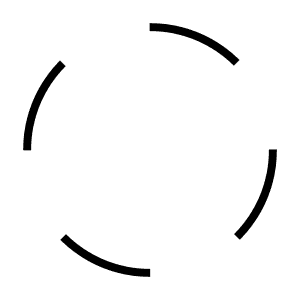“Urs Graf Consort, a collective with a corrupted genealogy, produce trail-blazing simulacra - songs nested within themselves, with the experimental accents of Ursonate. A protean duo operates under the name of Swiss engraver Urs Graf (1485 - c. 1529); Prune Bécheau and Adrien Bardi-Bienenstock are composers and performers for ensembles that are as varied as the motley company brought together in The Peasants War which Urs Graf depicted; Uva Ursi captures on-the-spot at acoustic vigils on the edge of amplified battlefields.
Baroque violin, vièle-à-trou, bass, arranged drums, a broad spectrum of vocals, tuba, trumpet, synthesizer, spinet, sanza, shakers, bells and rattles... are all played in different concerts by: Simon Sieger, Mathias Pontévia, Jœl Grip, Samuel Burjade, Sam Langer, Paul Ferbos, Pierre Borel, Adrien Perron, Rachel Ramos, Emmanuel LeGlatin, Mathieu Cahuzac, Camille Émaille, Gabriel Bristow, Antoine Hummel, Makoto Sato, Arden Day, Olivia Scemama, Pascal Sieger, Geoffroy Gesser, Malgorzata Kasprzycka, Gwladys Le Cuff, and many others. The sheer number and differing degrees of participation by these musicians and their voices avoids genre - from passionate, rasping dialogues and the slow sedimentary effort of building the composition, to the use of six languages in various arrangements and surprise oral interventions. The same applies to the modes of recording, whether in the studio, live or by integrating direct sound recordings.The compositions on Uva Ursi - or bearberry, a medicinal mountain plant with small white flowers - confound expectations and established standards and attain new forms of interplay between Italian variety, free jazz, cabaret, instrumental theatre, Lettrist recitation, the disruptive intensities of improvisation and noise, and walrus songs. These disjunctive synthesis do not exclude humming or toe-tapping either, even though they may initially seem untenable as a whole: the airs are captivating but any dancing only arrives in passing, and either gets bogged down by weird meter or catches a chill from deceptive disintegrations and globbed down by macabre sounds.” Gwladys Le Cuff
---
Adrien Bardi Bienenstock : french, italian, spanish, danish, bassesPrune Bécheau : baroque violin, synthesizer, piano, organ, mandolin, french, german, danish Simon Sieger : trombone, accordeon, tuba, radiator, danish, frenchMathias Pontévia : drums (on pair tracks, except track 8)Joel Grip : double bass, danish, swedishSamuel Burjade : drums (on impair tracks)Sam Langer : electric guitarPaul Ferbos : spinetPierre Borel : saxophoneAdrien Perron : zarbRachel Ramos : pandeiro, bell, shakersEmmanuel Le Glatin : acoustic guitarMathieu Cahuzac : congasGwladys Le Cuff : Apocalypsis NovaEnregistré au Tuquet en Dordogne, à Ste Foy La Grande en Gironde, à Euphonia et au 51 rue du petit puits à Marseille. Tecnici di registrazione e mix : Loïc Lachaize, Prune Bécheau e Adrien Bardi BienenstockMastering : Loïc Lachaize and Jan Vysocky.Ooro hihi : frontière ronflanteHülle : Prune Bécheau und Adrien Bichon BardiGrafik : Maja LarssonEnglish translations : Sam Langer & Patrick DahnThanks for the technical support (and more) of Thomas Pujols, Samuel Burjade, Eloïse Burjade, Emmanuel Le Glatin, Mathias Pontevia














